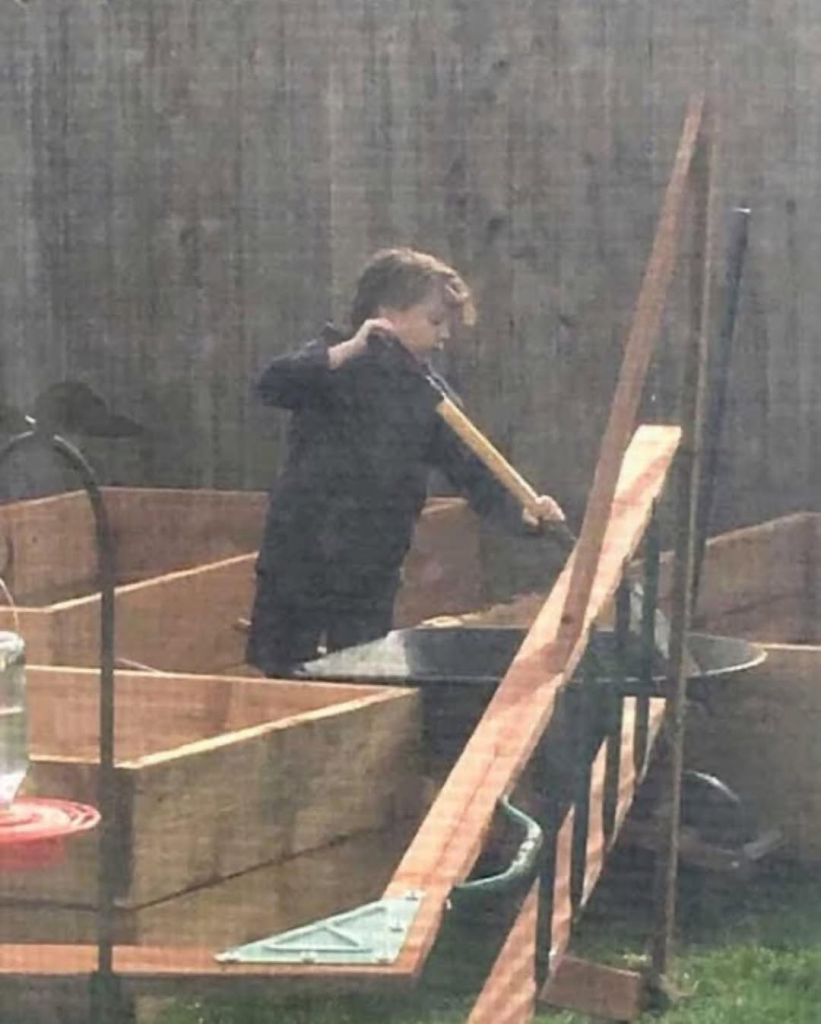I’ve started to think of my 11-year-old as an immovable slug of a boy—and not just in the gentle, teasing way a parent might. Seriously, I say it because when it’s time to get moving, he might as well be glued to the sofa.
That particular morning, he was deep into “Roblock” on the family laptop, stretched out in sweatpants and an old, soft T-shirt, feet dangling over the coffee table. He barely acknowledged me when I asked for help unloading dirt from the truck into the garden boxes that his mother, Mel, had recently put together. Instead, a long, drawn-out “Ummm… I’m busy right now,” rolled off his tongue, stretched as lazily as his posture.
I wasn’t planning on a confrontation—but, of course, one ensued. Between moans and excuses, I kept it short: “No, you’re not.” He looked up, one eye half-open, still sinking deeper into his slug-like comfort zone.
It didn’t take long before we were side by side, shovel in hand, next to a wheelbarrow brimming with damp earth. His hood was pulled low, his shoulders heavy and rounded, his eyes blank—as if waiting for me to quit any second.
Then he asked it: “Why do we have to do this?”

I paused. His question was small but honest. Neither he nor I was particularly interested in gardening. Mel, on the other hand, adored it—the way she turned plain soil into vibrantly growing things always struck me as a kind of magic.
I thought for a moment, and then I said what I hoped he’d remember one day:
“When you love someone, you serve them.”
As I swept my arm toward the garden boxes we’d built the weekend before, the wheelbarrow, the shovel, and the fresh pile of dirt, I added: “This… is what love looks like.”
He didn’t light up. He didn’t smile. But he did something more important—he picked up his shovel and got to work. Reluctantly, stiffly, but he moved. His back stayed bent, and his head stayed low, but he shoveled anyway.
When we finally finished, the dirt all neatly arranged under the open sky, I figured the moment had passed. We’d done our chore. Then life rolled on—we went to our separate corners of the day.
The next morning, I was at work when Mel texted me a photo. There he was—my slug-turned-helper—lifting another load of dirt. I blinked. He hadn’t had to do that; it wasn’t planned or assigned. It was voluntary.
When Mel asked him why he was helping, he shrugged—shoulders still carrying a hint of that previous slouch—and said, simply:
“Because I love you.”
At that moment, something small cracked in me. A swell of pride, yes—but more than that, a quiet hope. Because if love can shift that kind of resistance, maybe it can do the same for all of us in unexpected ways.